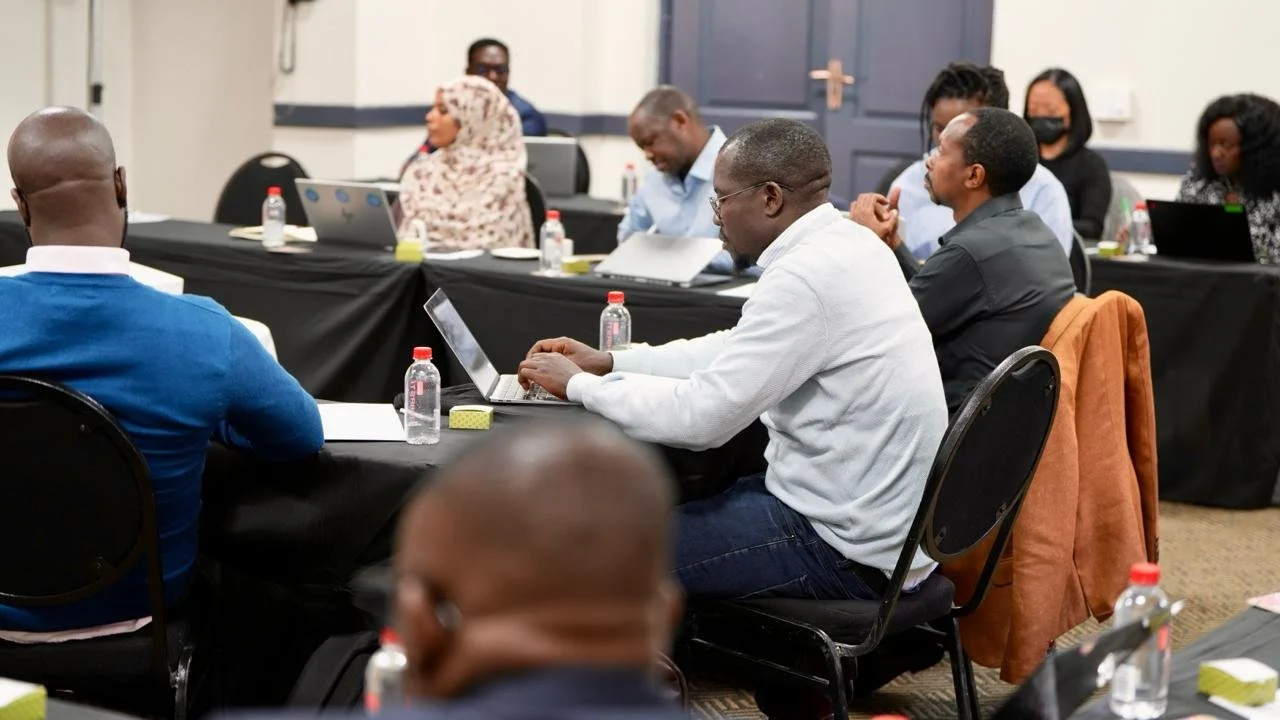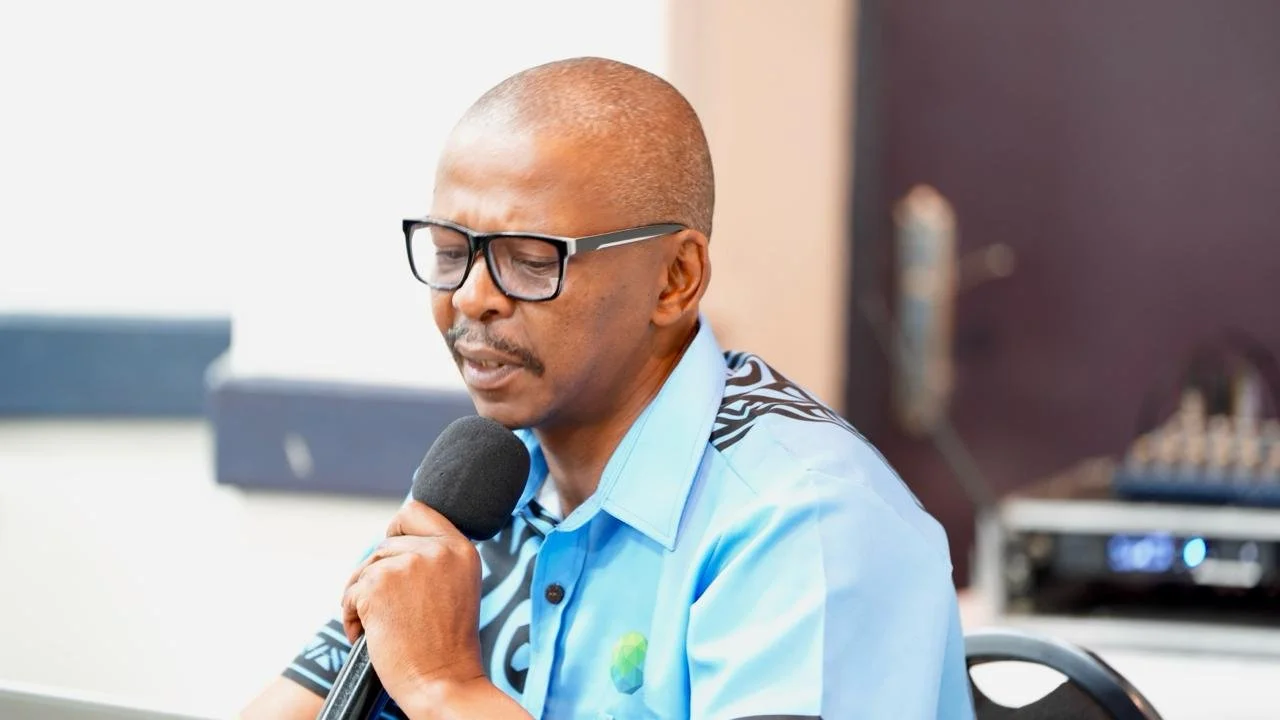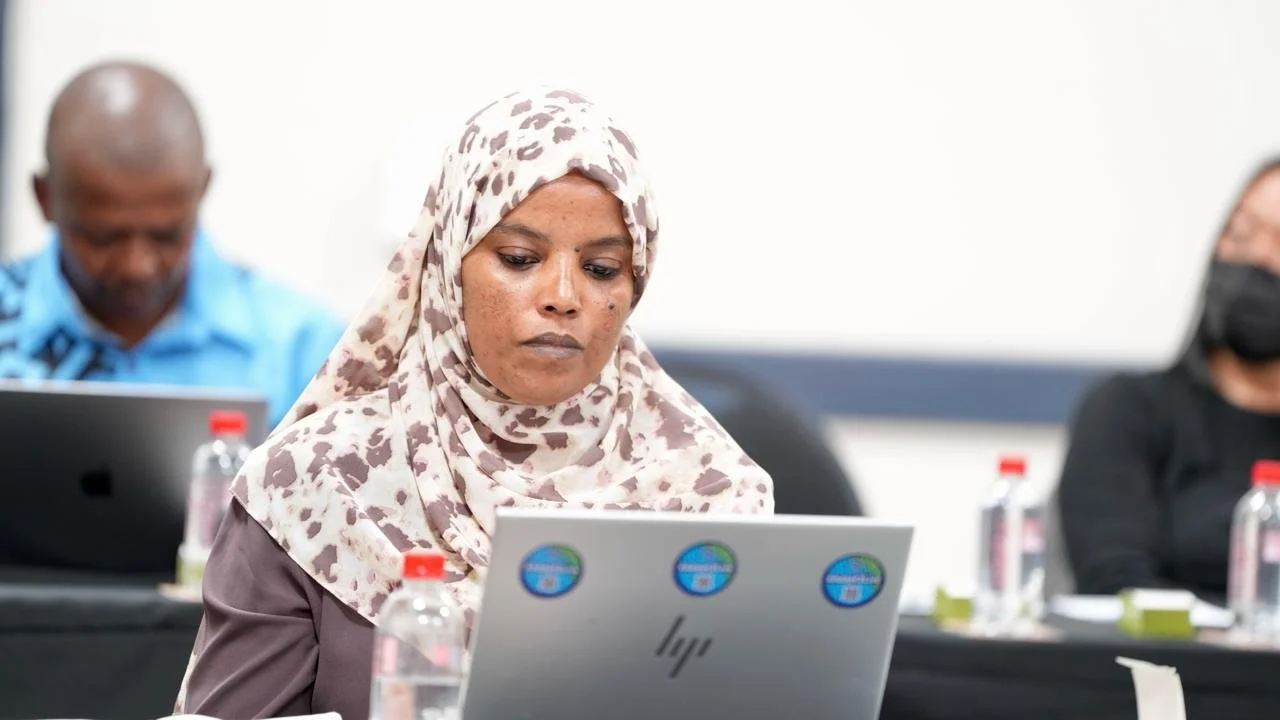WHERE IS THE MONEY? AFRICAN CLIMATE POLICY EXPERTS AND THINK TANKS ASK AS TALKS ON ADAPTATION FINANCE KICK OFF IN SOUTH AFRICA
Johannesburg might not have the glamour of a global summit, but what is happening here could prove quite consequential as it marks a moment when African thinkers and practitioners, tired of rhetoric, began to design the next phase of climate finance from the ground up. If the ideas being debated this week take root, they could reshape how the world funds adaptation, not just for Africa but for every region facing the gathering storm of climate disruption
African climate policy think tanks, government representatives, and civil society leaders are this week gathering in Johannesburg, South Africa, for two days of deliberation on one of the continent’s most pressing challenges: how to scale up climate adaptation finance in a fair, sustainable, and debt-sensitive way. The meeting, organised by Kenya’s Office of the Special Envoy on Climate Change in collaboration with Power Shift Africa and South Africa’s Council for Scientific and Industrial Research, comes at a pivotal time. With COP30 in Belém, Brazil, fast approaching, Africa is determined to arrive with both the usual demands, as well as a clear, coherent strategy for action.
For too long, adaptation has been the proverbial neglected stepchild of international climate negotiations. The world’s attention and money have mostly gone towards mitigation, which in this case means cutting emissions, building renewables, and, in some instances, setting carbon prices; while adaptation, which deals with surviving and thriving in the face of climate impacts already unfolding, has been left behind. Yet , as Mr Kwame Ababio from AUDA-NEPAD said in his opening remarks at the forum, for Africa, adaptation is not an optional extra, but an existential necessity.
Droughts, floods, cyclones, rising sea levels and unpredictable weather are tearing at the fabric of economies and livelihoods across the continent, which shows us that the cost of inaction is enormous, measured not just in billions of dollars but, as Mr Ababio said, “in lives disrupted and futures derailed”.
Speaking at the event, Ms Fatuma Hussein, from the Office of the Special Envoy on Climate Change, said the meeting would challenge the way adaptation finance has been framed and delivered. Delegates are examining how to move beyond the donor-recipient dynamic that often defines multilateral negotiations, where African priorities are adjusted to fit funding windows rather than the other way round.
Fatuma Hussein, from the Office of the Special Envoy on Climate Change
“There is a shared sense that Africa must define its own adaptation agenda and the frameworks through which it will demand finance,” said Ms Hussein. “The continent needs a coherent strategy that addresses both access barriers and fiscal risks, and that recognises the deep interconnection between climate finance and debt.”
Much of the discussion here will revolve around the uncomfortable reality that many African countries are already heavily indebted. Loans from multilateral development banks (MDBs) and other international institutions, though well-intentioned, have deepened fiscal strain on the continent, a stark reminder that climate finance, when delivered primarily as loans rather than grants or concessional funding, worsens debt distress.
The paradox is painful: the countries most affected by climate change are often those least able to take on more debt. Delegates are therefore exploring ways to reshape the terms of finance itself. Some are calling for a significant shift towards grants and low-interest, long-tenure loans. Others advocate for debt-for-adaptation swaps, where part of a country’s debt is forgiven in exchange for measurable climate-resilience investments. A number of experts also argue for new risk-sharing instruments and guarantees that can lower the cost of capital and reduce the debt burden for vulnerable states.
“The question of fiscal health is inseparable from that of climate justice,” said Mr Xolisa Ngwandla, a South African climate policy expert and consultant.
The principle of common but differentiated responsibilities, or the idea that those who have contributed least to global emissions should not bear the greatest cost of adaptation, looms large over the conversations. Many in the room insist that this principle must guide all negotiations leading up to COP30. Africa’s position is that adaptation finance should not trap countries in debt but help them grow in climate-positive ways. In short, it should be a tool of transformation, not a burden.
Xolisa Ngwandla, a South African climate policy expert
Participants in Johannesburg are also working towards a practical framework for accelerating adaptation finance between now and COP30 and beyond. This roadmap is expected to outline how African countries can develop strong pipelines of adaptation projects, integrate adaptation into national planning, and ensure that finance aligns with domestic priorities. The plan is not just to prepare talking points for Brazil, but to build a long-term strategy that can influence the global architecture of climate finance.
One major thread of conversation concerns the chronic imbalance between public and private financing. Most adaptation finance flowing to Africa still comes from governments, development banks, and bilateral donors. Private capital remains hesitant, put off by what it sees as unclear returns, high risks, and uncertain policy environments. Yet the private sector has vast resources that could be mobilised for adaptation if the right conditions are created. Delegates are examining how to make adaptation investments more attractive to private investors through de-risking mechanisms, blended finance, and innovative instruments such as resilience bonds and climate-resilient infrastructure funds.
“Tax incentives, regulatory reforms, and targeted guarantees could all play a role,” said Mr Benson Ireri, from Kenya’s Office of the Special Envoy for Climate Change, adding that “the aim is not to privatise adaptation but to leverage private finance in ways that align with public objectives”.
This, in turn, raises the question of institutional readiness. Even when funding exists, many African countries struggle to access it because of complex eligibility and accreditation requirements. Projects can take years to move from concept to approval. To address this, participants are calling for stronger regional and national institutions that can prepare “investment-ready” adaptation projects, standardise reporting, and streamline access to multilateral funds. Capacity building, for ministries of finance, environment, and planning, is seen as essential. Without the ability to design, cost, and monitor adaptation projects, even generous pledges will remain theoretical.
Another recurring theme is the need for clearer guidelines for developing National Adaptation Plans (NAPs) and Nationally Determined Contributions (NDCs). Many African countries have such plans in name but lack the financial or institutional muscle to implement them. The Johannesburg discussions have noted that NAPs and NDCs should be costed, prioritised, and integrated into national budgets. That means aligning adaptation goals with fiscal planning so that climate resilience becomes a structural feature of public investment rather than an afterthought. Participants are also stressing the importance of transparency, tracking what funds are pledged, what is disbursed, and how effectively they are used. Without accountability, adaptation risks becoming another arena of unmet promises.
Available data supports the urgency. While adaptation finance to Africa has increased in recent years, more than doubling between 2017 and 2023, it still falls far short of what is needed. Estimates suggest the continent requires at least $70 billion per year to meet its current adaptation goals, possibly much more. Only a fraction of that is available, and a worrying share comes in the form of loans. Meanwhile, official development assistance is declining, and donor fatigue is setting in. The gap between need and delivery is widening.
The Johannesburg participants are under no illusion about the magnitude of the task. They recognise that climate adaptation is not just about building seawalls or drought-resistant crops, but rethinking development itself. Adaptation touches every sector, from infrastructure, agriculture, health, energy, urban planning, and resilience should be built into everything, from roads and water systems to financial regulations and insurance frameworks. The goal, as Ms Hussein put it, is “climate-positive growth”, or development that strengthens, rather than undermines, the capacity to cope with future shocks.
Saada Sala from Power Shift Africa
Delegates have also raised the need for tools to assess the debt risks associated with climate finance. Just as financial institutions use stress tests to measure exposure to market shocks, they have noted that governments should have “debt-climate risk assessments” to ensure that taking on adaptation loans does not push them closer to insolvency, arguing that this would make it harder for adaptation finance to be offered in forms that undermine long-term sustainability.
Equity and justice remain at the moral heart of the conversation. Africa contributes the least to global emissions but suffers the most from climate change, and thus any discussion of adaptation finance is expected to address not just efficiency but fairness. Still, challenges loom. Donor budgets are tightening. Debt levels are rising. Private investors remain wary. And institutional capacity varies widely from country to country. Even as Africa prepares to make a stronger push for adaptation at COP30, the global political and financial environment is far from ideal, and the risk of yet another cycle of pledges without delivery is real. That is why many in Johannesburg are pressing for measurable commitments and monitoring systems that can track progress in real time.
Johannesburg might not have the glamour of a global summit, but what is happening here could prove more consequential. It marks a moment when African thinkers and practitioners, tired of rhetoric, began to design the next phase of climate finance from the ground up. If the ideas being debated this week take root, they could reshape how the world funds adaptation, not just for Africa but for every region facing the gathering storm of climate disruption.




